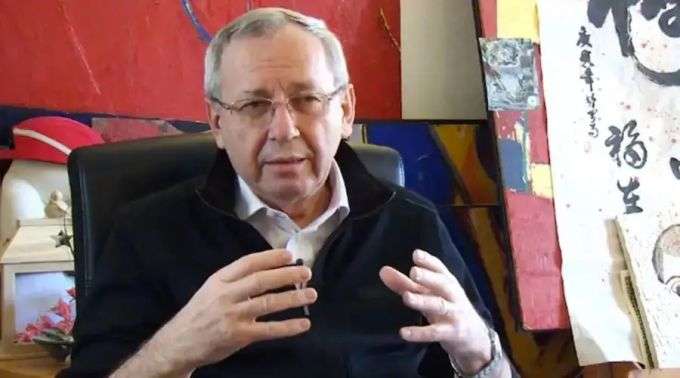
Father Johan Verschueren, the superior of Father Marko Rupnik, a Jesuit priest and artist accused of sexually abusing numerous nuns, explained that from an ecclesial point of view, it is “illegal” for Rupnik to be the owner of a company.
Newsroom (30/04/2023 20:40, Gaudium Press) Father Verschueren, the Jesuit superior in Rome, indicated that “From an ecclesial point of view it is illegal, unless it is proven that the right Church authorities gave permission for an exception. So far this proof has not been given,” the superior said he continued that “the unhappy thing” is that Rupnik owns 90% of a commercial company.
The Code of Canon Law, which governs the Church throughout the world, establishes in Canon 286: “Clerics are prohibited from conducting business or trade personally or through others, for their own advantage or that of others, except with the permission of legitimate ecclesiastical authority.”
In addition, Canon 668 states: “Before first profession, members are to cede the administration of their goods to whomever they prefer and, unless the constitutions state otherwise, are to make disposition freely for their use and revenue.”
The text adds: “To change these dispositions for a just cause and to place any act regarding temporal goods, they need the permission of the superior competent according to the norm of proper law.”
Canon 668 also stipulates: “Whatever a religious acquires through personal effort or by reason of the institute, the religious acquires for the institute. Whatever accrues to a religious in any way by reason of pension, subsidy, or insurance is acquired for the institute unless proper law states otherwise.”
According to an investigation published by the Italian media Domani, Rupnik owns 90% of the company Rossoroblu, a limited liability company (or srl in Italian) founded in 2007 with a capital of 10,000 euros (a little more than $11,000).
The other 10% is owned by Manuela Viezzoli, a former nun who belonged to the Loyola Community, the institute founded by Rupnik in Slovenia and the same community the more than 20 nuns Rupnik is accused of sexually abusing were members of.
“In 2007 Marko Rupnik founded the Rossoroblu company ‘for the creation and installation, in the workshop and on site, of mosaics, stained-glass windows, frescoes, murals, sculptures, paintings in all the various techniques and arts,’” Domani reported.
According to Italian media, Rossoroblu invoiced in 2022 the sum of 1,176,500 euros (about $1.3 million) and at the time had 15 workers.
Rupnik’s superior explained that “it is quite logical and completely legal” that “the Aletti Center [the art school founded by the priest] houses a commercial vehicle of this nature.”
“The opposite would be very worrisome, for tax reasons” since “producing and selling a work of art is a commercial activity. It would be illegal not to pay taxes in a transparent way,” he added.
However, the Jesuit superior pointed out that “the world of the religious is bound to the vow of religious poverty. This means very simply that religious persons cannot possess privately or personally goods of any kind or engage in commercial activities on their own behalf, even if he/she doesn’t use the resources for their own purpose.”
After commenting “there is nothing wrong with that, on the contrary!” he said: “The way this company is owned, managed, and linked with Centro Aletti puzzles me a lot. For other legal ways of ownership and of linking an Italian srl to a religious work are imaginable.”
“In this particular case, I was not aware that Father Rupnik owned 90% of it. He never told me. Consequently, we don’t control it and we don’t oversee it,” the superior said.
“I can only hope that things are managed in a correct and in a just way,” he said.
Compiled by Raju Hasmukh with files from CNA